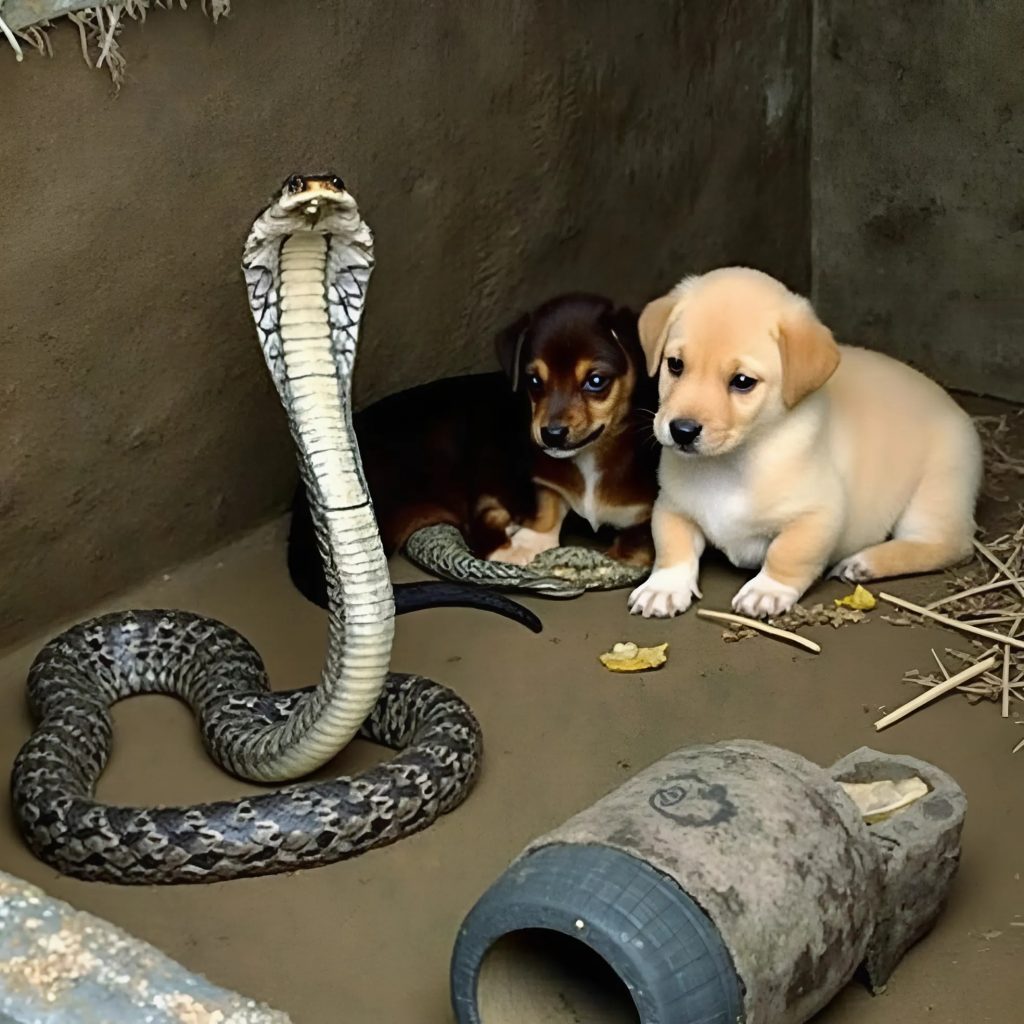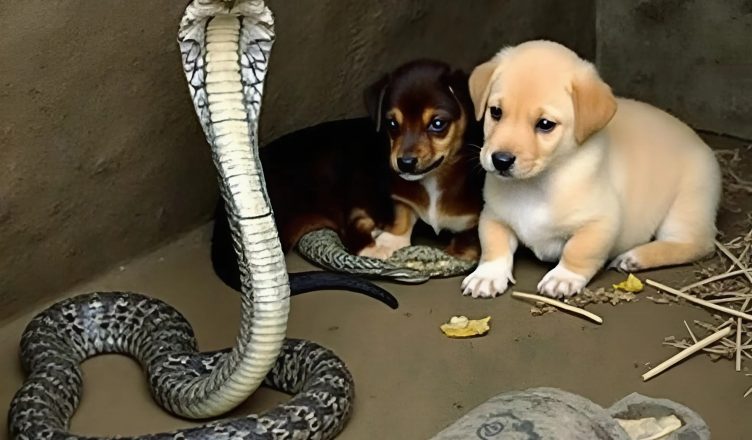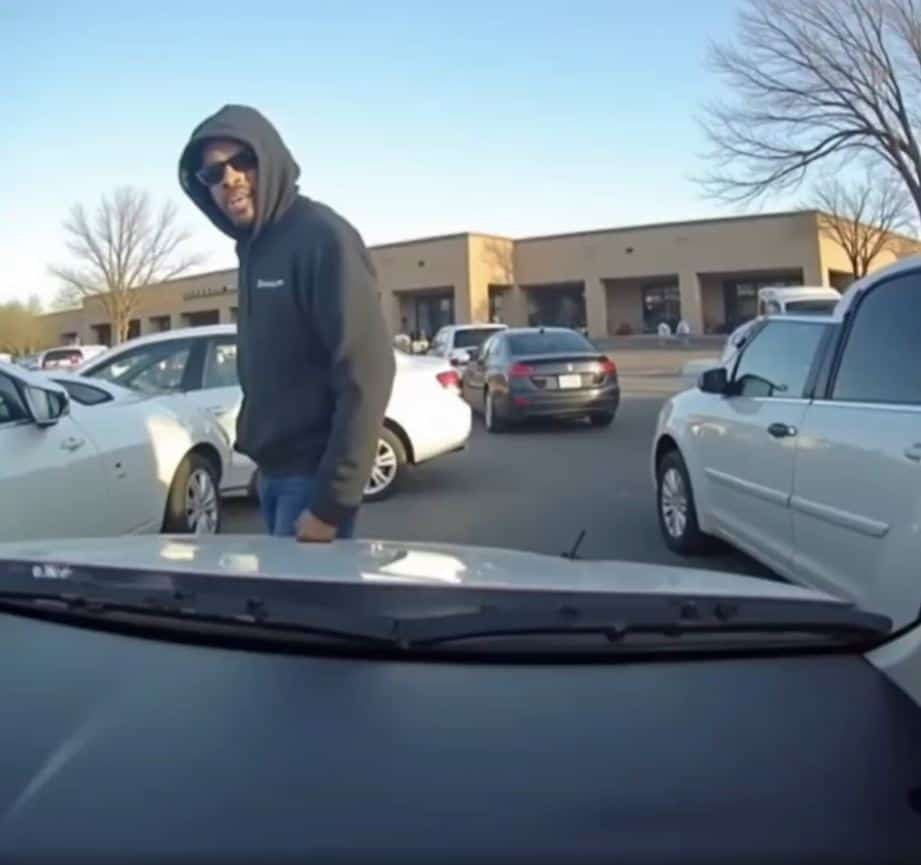People often use the phrase “like an animal” to describe crude, selfish, or violent behavior. It’s a common expression that reflects a deep-rooted belief: that the animal world is governed by brutality, instinct, and indifference. But time and again, nature offers quiet reminders that such judgments are not only unfair — they are often entirely false.
Animals are capable of incredible acts of empathy. They care for each other, form bonds, and sometimes show compassion not just toward their own kind, but to other species as well. These moments, though rare, are powerful. They make us pause and rethink everything we thought we knew about the instinct-driven world of wild creatures.
One such story unfolded in a quiet village, far from city lights and media attention. It began like many childhood adventures — with curiosity, a little mischief, and a tragic mistake.
Two small puppies were playing in an overgrown field near the edge of the village. It was a place where old structures stood half-collapsed and forgotten — among them, an abandoned well. The puppies, no older than a few weeks, were full of energy and innocence. They chased each other across the grass, unaware of the danger lurking nearby.
In their excitement, they wandered too close to the well’s crumbling edge. One misstep — and they both tumbled in.

The villagers heard the frightened yelps echoing from deep underground. When a group of men rushed to the scene, they peered down and saw the two puppies at the bottom of the pit, frightened but unharmed. Relief was short-lived. Just moments later, a chilling sight made everyone step back.
Curled in a corner of the well was a king cobra — one of the most venomous snakes in the world.
Silence fell over the gathered crowd. The men debated what to do. No one wanted to climb down while the snake was present. The well was too deep to reach the puppies by hand. Fear grew that they might not survive the night.
Hours passed. The puppies stayed huddled together. And yet — the snake made no move toward them. It simply remained still, watching.
By morning, villagers noticed something even more remarkable. The cobra had taken a position between the puppies and a stream of water trickling into the pit. Whenever the puppies tried to move toward the wet stone, the cobra gently blocked their path. Not aggressively. Deliberately. It was as if it understood the risk — and was guarding them from drowning.
Three full days passed. The puppies, though tired and thirsty, were still alive. The snake never harmed them.
Finally, animal rescue workers were able to lower a basket into the well. Carefully, they lifted out the puppies. Then the cobra. Not once did the snake strike or coil defensively. It allowed itself to be removed without incident — disappearing quietly into the grass beyond the village.
The story spread like wildfire.
To the villagers, it was nothing short of a miracle. Even elders who had spent their lives fearing cobras began to speak differently. They no longer saw the snake only as a symbol of danger — but as a guardian that, in that moment, chose not violence but restraint.
Scientists who later heard of the incident suggested that the cobra may have been disoriented or uninterested in attacking. But others, including experienced herpetologists, admitted the behavior was highly unusual. A wild cobra, especially in a confined space with small, warm-blooded animals, would typically respond with instinct — and instinct rarely favors peace.
The question lingers: Was it just coincidence, or something more?
We may never know for sure. But what’s undeniable is this — in a world too often divided by fear and assumption, this one quiet moment in a forgotten well shattered an entire village’s view of a creature they thought they understood.
Nature isn’t just tooth and claw. Sometimes, it is patience. Sometimes, it is protection.
And sometimes, even in the most unlikely places, it is mercy.
 Fact Stream Daily
Fact Stream Daily




